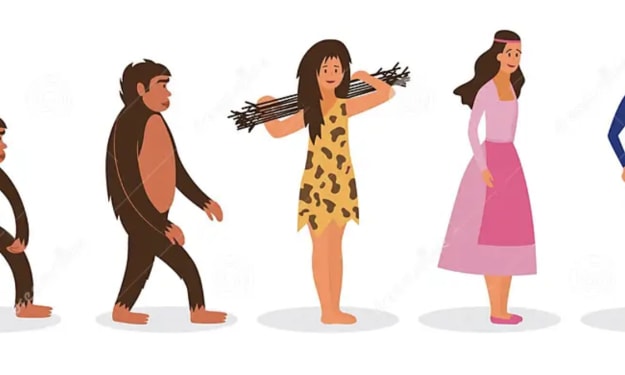My relationship is Failing...Help!
Dealing with Failing Relationships

Relationships can be one of the most fulfilling aspects of life, but they can also be incredibly challenging. Sometimes, despite our best efforts, relationships fail. Dealing with a failing relationship can be an emotional rollercoaster, but it's important to remember that there are ways to cope and move forward.
1.Communicate openly and honestly
Communication is key in any relationship, but it becomes even more important when a relationship is failing. It can be tempting to shut down and avoid difficult conversations, but that will only make things worse in the long run. Instead, try to communicate openly and honestly with your partner about what's going on and how you're feeling. Be willing to listen to their perspective as well.
2. Take time for yourself
Dealing with a failing relationship can be emotionally exhausting, so it's important to take time for yourself to recharge. Whether it's going for a walk, practicing yoga, or reading a book, find activities that help you relax and decompress. Taking care of yourself will help you approach the situation with a clearer mind and a calmer demeanor.
3. Seek support from friends and family
It's important to have a support system when going through a difficult time. Reach out to friends and family members who you trust and who will listen without judgement. Having people to talk to and lean on can help you feel less alone and give you the strength to move forward.
4.Consider couples therapy
If you and your partner are both willing to work on the relationship, couples therapy can be a helpful resource. A therapist can provide a neutral space for you to communicate openly and work through any issues. They can also provide guidance and support as you navigate the process of repairing the relationship or deciding to end it.
5. Be willing to let go
Sometimes, despite our best efforts, a relationship just isn't meant to be. It can be difficult to let go of something that we've invested so much time and energy into, but sometimes it's necessary for our own well being. If you've tried everything you can and the relationship is still failing, it may be time to accept that it's time to move on.
In conclusion, dealing with a failing relationship can be a painful and challenging experience, but it's important to remember that you're not alone. By communicating openly, taking care of yourself, seeking support, considering couples therapy, and being willing to let go, you can move forward and find happiness and fulfillment in your life. Remember to be kind to yourself and take things one day at a time.

1. Communicate openly and honestly
Open and honest communication is crucial in any relationship, and it becomes even more important when a relationship is failing. When things start to go wrong in a relationship, it's easy to get defensive or to start blaming the other person for the problems. However, this approach rarely leads to a resolution.
Instead, try to approach the situation with a willingness to listen and understand your partner's perspective. Be honest with yourself about what's going on, how you're feeling, and what you need from the relationship. Then, communicate these things to your partner in a clear and respectful way.
It's also important to listen actively to your partner's point of view. Try to understand their perspective and their needs as well. This can help you find common ground and identify solutions that work for both of you.
When communicating, it's important to avoid using blame or criticism. Instead, use "I" statements to express how you're feeling. For example, instead of saying "You never listen to me," try saying "I feel unheard when we don't have a chance to talk without interruptions." This approach is less likely to put your partner on the defensive and more likely to open up productive dialogue.
Finally, be patient and understanding. It can take time to work through problems in a relationship, and it may not always be easy to find a solution. However, by communicating openly and honestly, you can start to build a foundation of trust and understanding that can help you navigate the difficulties of a failing relationship.
2. Take time for yourself
Taking time for yourself is an important aspect of dealing with a failing relationship. When a relationship is struggling, it can be emotionally draining and stressful. It's essential to take care of yourself both physically and mentally during these times.

There are many ways you can take time for yourself, and the important thing is to find what works for you. Here are some ideas:
Practice self-care: Self-care is an important part of taking care of your mental and emotional health. Take a bath, read a book, or do something that relaxes you.
Exercise: Exercise is a great way to release stress and clear your mind. Go for a run, hit the gym, or try a new fitness class.
Connect with friends and family: Spending time with loved ones can be a great way to take your mind off your problems and feel supported.
Try something new: Learning a new skill or trying a new hobby can be a great way to challenge yourself and build your confidence.
Take a break: Sometimes, it can be helpful to take a break from the relationship and spend some time alone. This can help you gain clarity and perspective on the situation.
It's important to remember that taking time for yourself doesn't mean giving up on the relationship. Instead, it's an opportunity to recharge your batteries and approach the situation with a fresh perspective.
Taking time for yourself is an essential part of dealing with a failing relationship. It's important to prioritize your mental and emotional health and find activities that help you relax and decompress. By taking care of yourself, you can approach the situation with a clearer mind and a calmer demeanor, which can help you navigate the difficulties of the relationship.
3. Seek support from friends and family
Dealing with a failing relationship can be challenging and emotionally draining, and seeking support from friends and family can help you through this difficult time. Talking about your feelings and getting advice from loved ones can provide you with valuable perspective and help you work through your emotions.

Here are some ways that seeking support from friends and family can be beneficial:
Validation: Sometimes, you just need to vent and have someone listen to you. Friends and family can provide a listening ear and validate your feelings.
Objective advice: Loved ones can provide you with an outside perspective on the situation. They can help you see things that you may not have considered and provide you with advice on how to handle the situation.
Emotional support: Friends and family can provide you with emotional support during this difficult time. They can offer words of encouragement and help you through the grieving process if necessary.
Distraction: Spending time with loved ones can be a great distraction from the problems you're facing in your relationship. Engaging in fun activities with friends and family can help you take your mind off your problems and enjoy the moment.
It's important to remember that seeking support from friends and family doesn't mean that you have to share all the intimate details of your relationship. You can share as much or as little as you feel comfortable with. The important thing is to surround yourself with people who care about you and who you can trust.
Seeking support from friends and family is an important aspect of dealing with a failing relationship. It can provide you with valuable perspective, objective advice, emotional support, and distraction. Don't be afraid to reach out to your loved ones during this difficult time.
4. Consider couples therapy

If you're in a failing relationship and are struggling to work through your problems on your own, couples therapy may be a valuable option to consider. Couples therapy is a type of counseling that focuses on helping couples improve their communication, strengthen their relationship, and work through any issues they may be facing.
Here are some reasons why couples therapy can be beneficial:
A safe space to communicate: Couples therapy provides a neutral, safe space for you and your partner to communicate openly and honestly. A trained therapist can help facilitate productive communication and help you both feel heard and understood.
Professional guidance: A trained therapist can provide professional guidance on how to work through your problems in a healthy, productive way. They can teach you and your partner effective communication skills, coping mechanisms, and problem-solving strategies.
Improve your relationship: Couples therapy can help you and your partner identify the strengths and weaknesses in your relationship and work on ways to improve it. By learning how to communicate more effectively, you can build a stronger, more satisfying relationship.
Identify deeper issues: Sometimes, the problems in a relationship are rooted in deeper issues such as past traumas or personal struggles. A therapist can help you identify these underlying issues and work on resolving them together.
It's important to remember that couples therapy is not a magic solution and requires both partners to be committed to the process. It may take time and effort to see significant improvements in your relationship, but with dedication and hard work, it is possible.
If you're struggling with a failing relationship, couples therapy can be a valuable option to consider. It provides a safe space to communicate, professional guidance, and the opportunity to improve your relationship. Don't hesitate to reach out to a trained therapist if you feel that it could benefit your relationship.
5.Be willing to let go
One of the most difficult things to accept when dealing with a failing relationship is the possibility of letting go. However, sometimes it may be necessary to let go and move on if the relationship is no longer healthy or fulfilling. Here are some reasons why being willing to let go can be beneficial:
Reduces stress: Being in a failing relationship can be stressful and emotionally draining. Letting go can help you reduce stress and focus on your well-being.
Allows for growth: Letting go of a relationship that is no longer serving you can allow for personal growth and new opportunities. It can provide a chance to explore new interests, form new friendships, and develop a sense of independence.
Honors your needs: Letting go of a failing relationship can honor your needs and desires. It's important to prioritize your well-being and be true to yourself.
Allows for closure: Letting go of a relationship can provide closure and allow both parties to move on in a healthy way. It can help you both gain perspective and reflect on the relationship, which can lead to personal growth and healing.
It's important to remember that letting go of a relationship is not easy, and it may take time to come to terms with the decision. It's important to seek support from friends, family, or a therapist during this time to help you through the process.

Being willing to let go of a failing relationship can be beneficial for your well-being, personal growth, and overall happiness. While it may be difficult, it's important to prioritize your needs and make the decision that is best for you. Remember that seeking support and allowing yourself time to heal is an important part of the process.
Conclusion
Dealing with a failing relationship can be a difficult and emotionally draining experience. However, there are steps you can take to help navigate this challenging time. Communicating openly and honestly, taking time for yourself, seeking support from friends and family, considering couples therapy, and being willing to let go are all important strategies for coping with a failing relationship.
It's important to remember that there is no one "right" way to handle a failing relationship. Each situation is unique, and what works for one person may not work for another. The key is to prioritize your well-being and make decisions that are best for you.
Remember to be kind to yourself during this time and seek support from trusted individuals. With time, effort, and support, you can move forward and find a path that leads to healing and growth.





Comments
There are no comments for this story
Be the first to respond and start the conversation.